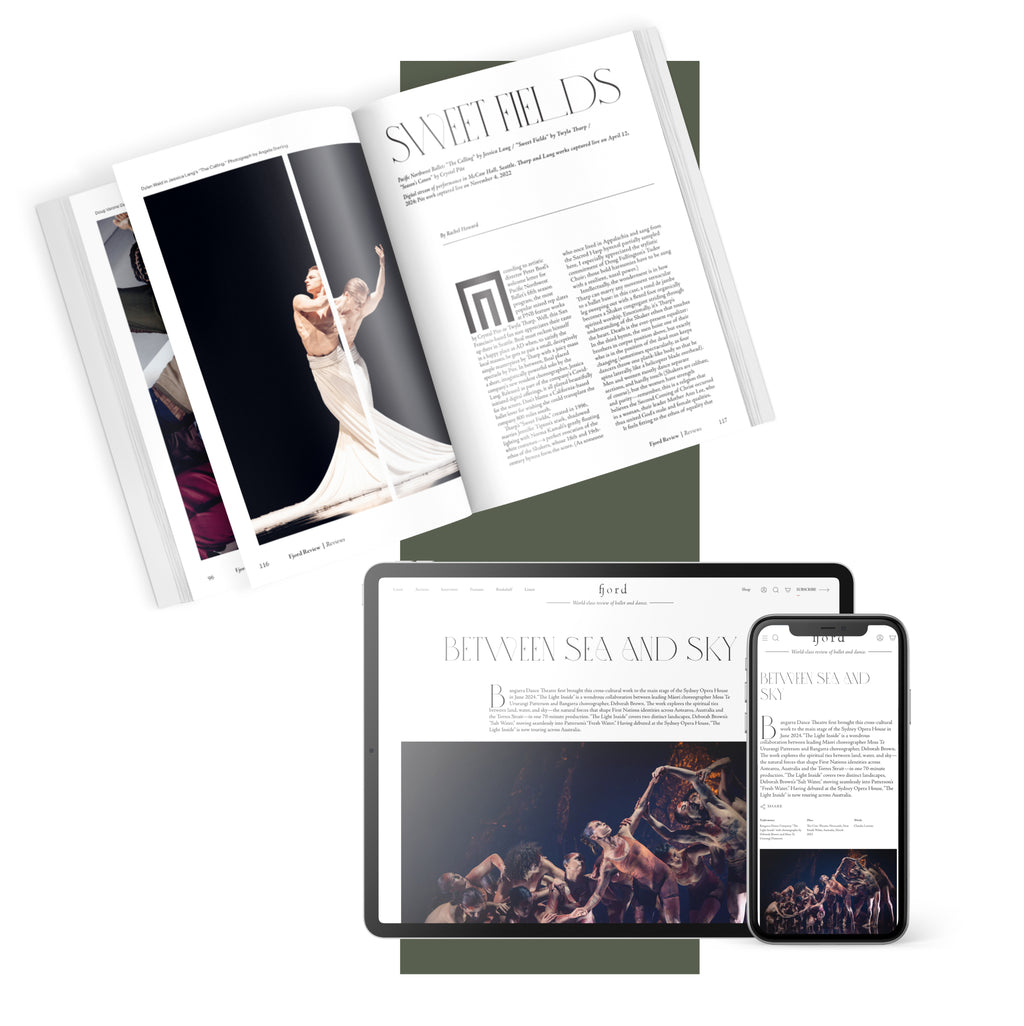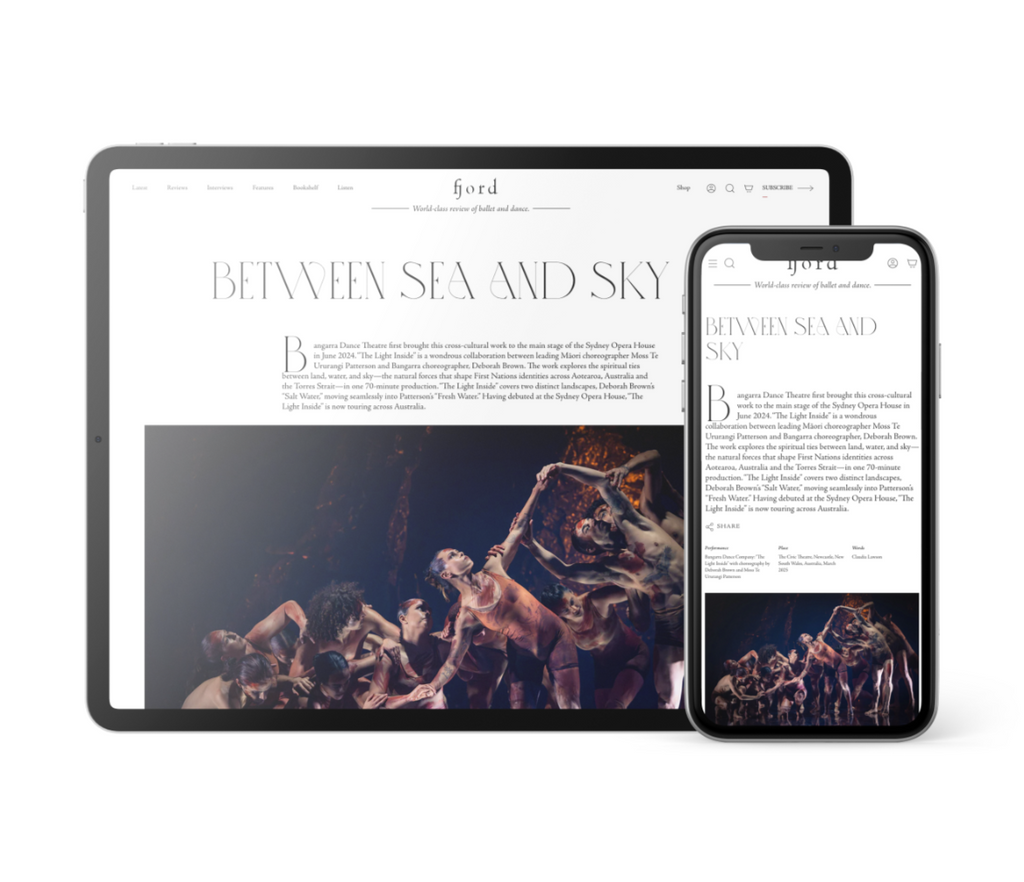Float like a Butterfly
Sans tutu or pointe shoes, New York Ballet principal Sara Mearns delivered a knock-out punch in her 20-minute solo, “Zebra.”
Plus
World-class review of ballet and dance.
What does it mean to devote your life to dance? Amy Sherman-Palladino and Daniel Palladino’s new streaming series, “Étoile,” which debuted April 24 on Prime Video, attempts to answer this question in a way that resonates with both dancers and general audiences. Not an easy task.



“Uncommonly intelligent, substantial coverage.”
Your weekly source for world-class dance reviews, interviews, articles, and more.
Already a paid subscriber? Login

Sans tutu or pointe shoes, New York Ballet principal Sara Mearns delivered a knock-out punch in her 20-minute solo, “Zebra.”
PlusJapan Society’s Yukio Mishima centennial series culminated with “Mishima’s Muse – Noh Theater,” which was actually three programs of traditional noh works that Japanese author Yukio Mishima adapted into modern plays.
PlusThroughout the year, our critics attend hundreds of dance performances, whether onsite, outdoors, or on the proscenium stage, around the world.
PlusOn December 11th, the Alvin Ailey American Dance Theater presented two premieres and two dances that had premiered just a week prior.
Plus
comments